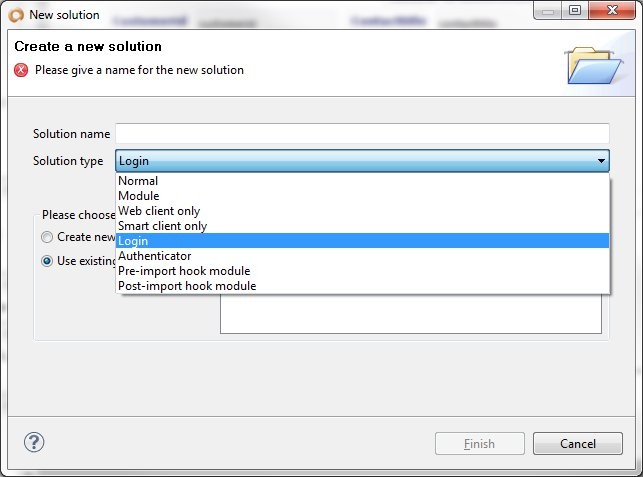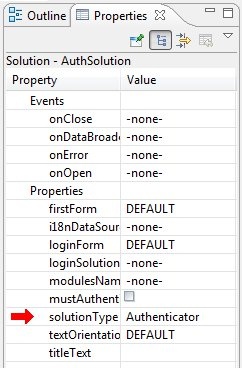Page History
...
- If using Servoy for storing user data, create a user database table for the application or set of applications. Be sure to at least include a username and password column in the databasetable.
- Create a login solution. A login solution should have the following attributes:
- Solution type of login
- A login form set as the first form.
- The login form should have fields (normally form variables) for entering a username and password
- A button or method that will validate the fields are not null and finally call the authentication method of the authenticator solution. See Login Method Example.
- The login solution has no database access, so if there is any validation done during the login process (find tenant id, verify user exists, etc.), the login solution must call an authenticator solution for any database information.
- Solution type of login
- Create an authenticator solution (during the solution creation process, same as login solution). The authenticator has the following attributes:
- Solution type of authenticator
- Includes a global method to authenticate users. This method will check the users table or call external authentication to authenticate. This method will also log the user into Servoy. See Authenticator Method Example.
- Can also include other methods for checking a user or getting a tenant id.
- The authenticator solution is not a module of the solution, but must be in the repository of the application server or in the developer's workspace.
- Solution type of authenticator
- Set the login solution property to the login solution you have just created.
- Deploy the application, making sure to include the authenticator solution if you do an import on the application server. The custom login form will appear when launching the solution.
...
Overview
Content Tools
Activity

